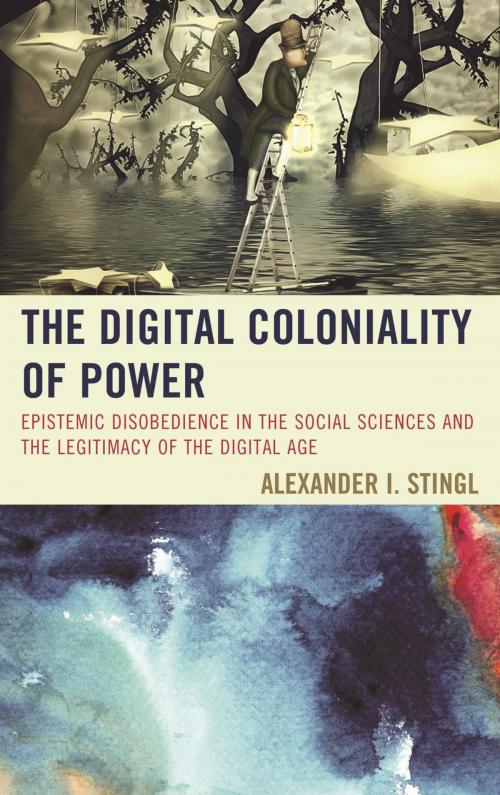The Digital Coloniality of Power
Epistemic Disobedience in the Social Sciences and the Legitimacy of the Digital Age
Nonfiction, Religion & Spirituality, Philosophy, Epistemology, Social & Cultural Studies, Social Science, Cultural Studies, Popular Culture| Author: | Alexander I. Stingl | ISBN: | 9781498501934 |
| Publisher: | Lexington Books | Publication: | December 16, 2015 |
| Imprint: | Lexington Books | Language: | English |
| Author: | Alexander I. Stingl |
| ISBN: | 9781498501934 |
| Publisher: | Lexington Books |
| Publication: | December 16, 2015 |
| Imprint: | Lexington Books |
| Language: | English |
Trouble is afoot in Digital Culture and Nerdland. These are, Alexander I. Stingl claims, not the engine of freedom and democracy that they once were hailed to be – this much is already clear in the wake of the snooping and surveillance crises that broke in recent years. Digitalization is but another version of the coloniality of power and being that has been at work for decades and centuries. He poses the question, whether Digital Age possess the legitimacy that ‘digitalization’ has claimed. His response is critically realistic, but he doesn’t stop at a critique for criticism’s sake. Inspired by the ideas of decolonial scholars, feminist science studies, current biological and neuro-cognitive research, and sociologists capable of reflection and self-criticism, Stingl attempts to ‘break’ the canvas of sociology and show that adding a third and decolonial dimension to the two-dimensional sociological imagination is indeed possible. He illustrates that it is possible that class-rooms, free speech on internet, and the inequalities in the production and distribution of a new form of social capital – digital cultural health care capital – can be subjected to a decolonial perspective along a sociological line of inquiry, if sociologists allow for relations with other disciplines and scholarship to be integrative conversations. The goal of this book is not to offer results or closed arguments but to create, instead, platforms for thinking further, opening new lines of inquiry, and to argue that it is not enough to identify problems or to attempt solve the problems with politics or best practice solutions. Instead, he proposes, we must learn to identify and make use of the opportunities that are produced by any problem.
Stingl’s conclusion is, in short, that a sociology that takes the decolonial challenge and critique seriously, can not be a sociological (sub)discipline or a sociology of (a) problem, but it must be a sociology of opportunities.
Trouble is afoot in Digital Culture and Nerdland. These are, Alexander I. Stingl claims, not the engine of freedom and democracy that they once were hailed to be – this much is already clear in the wake of the snooping and surveillance crises that broke in recent years. Digitalization is but another version of the coloniality of power and being that has been at work for decades and centuries. He poses the question, whether Digital Age possess the legitimacy that ‘digitalization’ has claimed. His response is critically realistic, but he doesn’t stop at a critique for criticism’s sake. Inspired by the ideas of decolonial scholars, feminist science studies, current biological and neuro-cognitive research, and sociologists capable of reflection and self-criticism, Stingl attempts to ‘break’ the canvas of sociology and show that adding a third and decolonial dimension to the two-dimensional sociological imagination is indeed possible. He illustrates that it is possible that class-rooms, free speech on internet, and the inequalities in the production and distribution of a new form of social capital – digital cultural health care capital – can be subjected to a decolonial perspective along a sociological line of inquiry, if sociologists allow for relations with other disciplines and scholarship to be integrative conversations. The goal of this book is not to offer results or closed arguments but to create, instead, platforms for thinking further, opening new lines of inquiry, and to argue that it is not enough to identify problems or to attempt solve the problems with politics or best practice solutions. Instead, he proposes, we must learn to identify and make use of the opportunities that are produced by any problem.
Stingl’s conclusion is, in short, that a sociology that takes the decolonial challenge and critique seriously, can not be a sociological (sub)discipline or a sociology of (a) problem, but it must be a sociology of opportunities.















